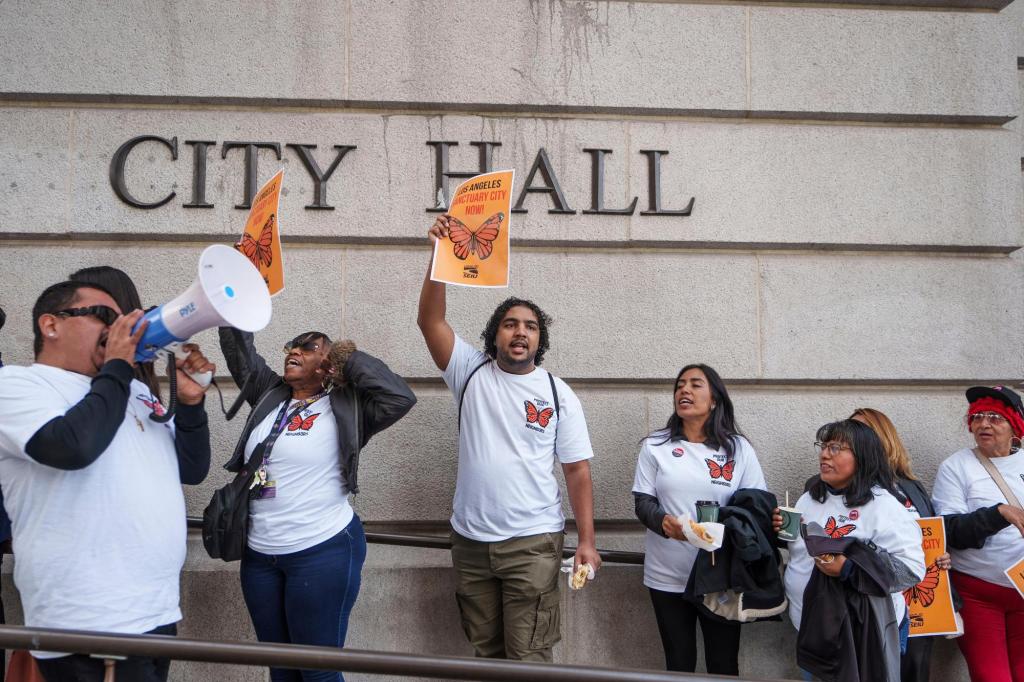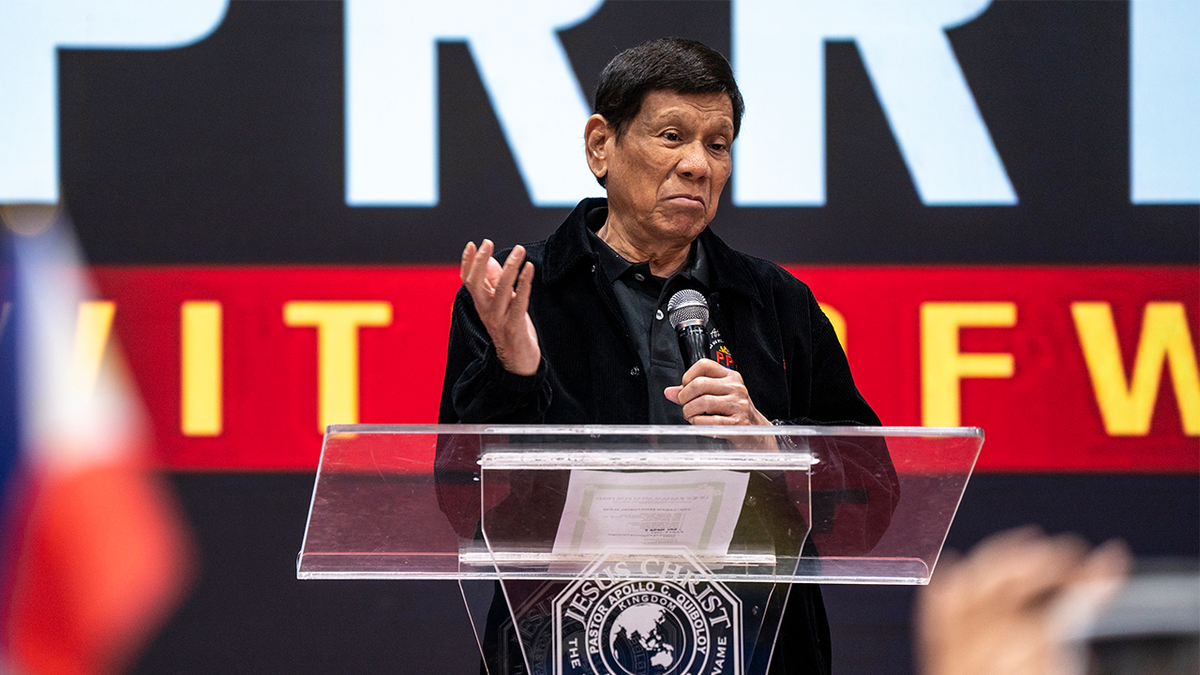
By JAIMIE DING, Associated Press
LOS ANGELES (AP) — The Los Angeles City Council on Tuesday approved a so-called “sanctuary city” ordinance that bars city resources from being used for immigration enforcement and city departments from sharing information on people without legal status with federal immigration authorities, in anticipation of potential mass deportations under President-elect Donald Trump.
Councilmembers voted unanimously on the measure, joining more than a dozen cities across the United States with similar provisions. Sanctuary cities or states are not legal terms but have come to symbolize a pledge to protect and support immigrant communities and decline to voluntarily supply information to immigration enforcement officials. Advocates say they are havens for immigrants to feel safe and be able to report crime without fear of deportation.
The measure will come back to the council for a second vote as a formality. Mayor Karen Bass, who has the power to veto it, has said she supports the ordinance.

With Trump’s promises of a vast immigration crackdown upon his return to the White House in January, immigration advocates urged Los Angeles council members to move swiftly.
“We’re going to send a very clear message that the city of Los Angeles will not cooperate with ICE in any way,” said councilmember Hugo Soto-Martinez, referring to the Immigration and Customs Enforcement agency. “We want people to feel protected and be able to have faith in their government and that women can report domestic violence, crimes.”
Soto-Martinez, one of the councilmembers who introduced the initial motion last year, said his parents and many of his constituents are immigrants without legal status. They are “embedded in the larger community,” from cooking and cleaning houses to working as nannies, he said.

But it’s unclear how much will change under the ordinance since the city already does not cooperate with federal immigration authorities.
The Los Angeles Police Department has a policy mandating that officers not inquire about a person’s immigration status or make arrests based on legal status. Its new police chief Jim McDonnell has also pledged not to cooperate with mass deportations work or federal agencies on immigration enforcement issues.
Former Los Angeles Mayor Eric Garcetti issued an executive directive in 2019 that offered protections to immigrants, but Tuesday’s ordinance would codify those protections into city law.

The state of California has similar protections. Former California Gov. Jerry Brown signed sanctuary state legislation in 2017 to bar police from asking people about their immigration status or participating in federal immigration enforcement activities.
Then-President Trump responded by attempting to withhold funding from sanctuary cities and favor cities that pledge to cooperate with immigration enforcement for federal grants.
Cities from New York to San Francisco have long-standing policies to support immigrants, but criticism of those measures grew with the influx of migrants. Some of the backlash occurred after Republican governors in Texas and Florida began bussing migrants to Democratic-led “sanctuary cities” last year in what critics have called political stunts.

New York City Mayor Eric Adams has since called for expanded cooperation between local police and federal immigration authorities, attacking the current city policies limiting such communication as detrimental to public safety.
Migrants were also bused to Los Angeles, though in smaller numbers.
More than 100 people gathered on the steps of city hall Tuesday morning ahead of the vote to urge the city council to enact the ordinance.
Martha Arévalo, executive director of the Central American Resource Center in LA, called the law “long overdue.”
“This is Trump 2.0 where he ran on a platform of hate and division and separating families and mass deportations,” Arevalo said. “It’s traumatic to the immigrant community. There’s a lot of trauma, there’s a lot of fear.”
Supporters of the sanctuary city ordinance, many of whom are people without legal status themselves, spoke on their personal experiences with the threat of deportation.
“I grew up in the shadows, constantly fearing separation from my loved ones and being sent back to a place we had fought so hard to escape,” said Jesus Carreon, a current student at Harvard Law School and graduate of University of Southern California, asking the council to vote in favor of the sanctuary policy.
Some brought up concerns that it could encourage more migrants without legal status to come to the city and take resources away from addressing homelessness.
“I’m sure there’s millions of people that want to come to LA and we can’t be a sanctuary city for everybody,” Charles Brister told the city council before the vote. “We have people in this city who don’t have beds, American citizens who are homeless.”
Mayor Bass said recently “this moment demands urgency. Immigrant protections make our communities stronger and our city better.”
Originally Published:






